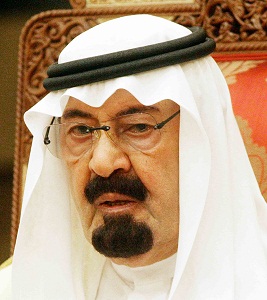 In the wake of deadly clashes in the eastern province of Saudi Arabia following the arrest of prominent Shia sheik, Nimr Al-Nimr, the Saudi Arabian King Abdullah bin Abdul Aziz has called for a summit of Muslim leaders to be held next month to discuss “sedition and fragmentation” in their respective nations.
In the wake of deadly clashes in the eastern province of Saudi Arabia following the arrest of prominent Shia sheik, Nimr Al-Nimr, the Saudi Arabian King Abdullah bin Abdul Aziz has called for a summit of Muslim leaders to be held next month to discuss “sedition and fragmentation” in their respective nations.
Abdullah wishes to convene the summit on 14 August in a bid at “unifying the ranks” of Muslims, the report said.
There were no further details concerning the agenda of the meeting.
At this time, it is uncertain what issues such a meeting would entail, but in the wake of the Arab uprisings and Sunni-Shia rift in a number of Gulf countries, the meeting is seen as a means to address the sectarian issues simmering in places like Iraq, Bahrain, Syria and Lebanon.
The exact details of the summit’s agenda are still unknown, but the state-run Saudi Press Agency quoted the Saudi Foreign Minister who said the King called for “an extraordinary Islamic solidarity meeting to ensure… unity during this delicate time as the Muslim world faces dangers of fragmentation and sedition.”
Various news outlets have linked the King’s announcement with another announcement that the King plans on launching a campaign to raise money “in support of our brothers in Syria,” referring to the Syrian fighters trying to topple Basher Al-Assad.
Al-Assad himself is an Alawite, which is an offshoot of Shia Islam, and the other Sunni Gulf nations have been consistent in their support for the Syrian rebels.
In Syria the Alawite are the ruling minority.
In Egypt an amendment recently proposed for the constitution seeks to make blasphemy illegal, a move seen by many as an attack directed at Shia Muslims, and other religious minorities, whose teachings and beliefs carry inherent contradictions to the majority Sunni population.
Yesterday’s bomb blast in Iraq, which killed at least 107 people in predominantly Shia neighbourhoods, is believed to have been carried out by the largely anti-Shia Al-Qaeda.
Anti-government forces in Iraq are well known for being linked with groups such as Al-Qaeda.
Reuters quoted an unnamed official who believed “recent attacks are a clear message that al-Qaeda in Iraq is determined to spark a bloody sectarian war.”
In Bahrain, following more than a year’s worth of reformist protests aimed at the monarchy by the underrepresented Shia citizens of the small Gulf country, security forces aided by the Saudi military have taken hard-line stances, including the mass arrest of human rights advocates, activists who are often beaten while in detention.
Several protesters have been shot and killed by security forces.
The situation has been further exasperated in places such as Pakistan where Iran, the largest Shia majority country in the world, is believed to fund Shia militants, whereas Gulf nations such as Saudi Arabia are believed to be funding Sunni militants.
The Pakistani Taliban recently claimed responsibility for attacks that led to the death of 14 Shias in a roadside bomb, and Shia Muslims are often the target of sectarian violence by small groups of individuals as much as organisations.




